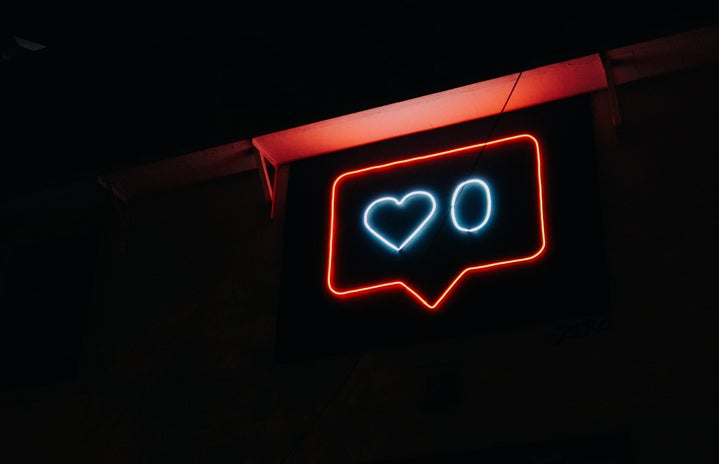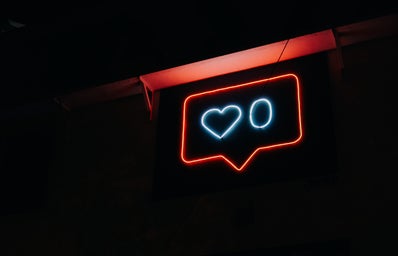Winter is coming. Undoubtedly, this means the inundation of my Instagram story feed with mugs of hot beverages, #selfcare, and Morgan Harper Nichols. And, I have to say, I’m not excited. I can get behind sweater season and cozy afternoons as much as the next girl, but self-care is a buzzword I’m tired of hearing, a social media facade I’m tired of seeing.
It’s really easy to spend thirty or so minutes painting your nails with your favorite fall color and to throw on a face mask with a quick little “#selfcare” on your private story. It’s also easy to microwave water in your Urban Outfitters mug, drop in a chai tea bag, and curl a blanket around it (Click! Like magic, a perfectly curated picture with just the right amount of sunlight, accessorized with stickers and “afternoons like theeeeese” in a flirty font). It’s even easier to add some essential oil diffuser/bath bomb/adult coloring book/random Instagram ad product to your cart, spending money you probably should be saving all in the name of “treating yourself.”
But here’s the thing. None of it is self-care. Oftentimes, you’re spending your money on the commodification of the self-care ideal because it’s super trendy, super fun, super feminist, whatever. Or you’re hopping on this trend so you have an excuse to post. Maybe you’ve been reading too many Buzzfeed articles. “Self-care” is just the latest way to glamorize our lives on social media. Sure, your face might be doing great post-face mask and your nail color is bomb, but if you haven’t cleaned your room in three weeks, you’re not writing that paper with a fast-approaching deadline, or getting good sleep, it doesn’t mean shit. Taking care of yourself doesn’t align itself with showmanship.
And Morgan Harper Nichols does not equal therapy. On any given day, I probably see at least eight reposts of whatever her latest quote is, and I have serious doubts that her content resonates with these eight people so deeply and personally that they feel compelled to spread the wealth and share it with nine hundred of their closest friends. Sure, she uses pretty colors, her handwriting is nice, and her aesthetic is generally pleasing. But I’m not a huge fan of her posts becoming synonymous with being “woke” about mental health. Looking after your mental health takes more than a few clicks on Instagram. We all know the trifecta of physical health (good food, exercise, sleep) takes a committed effort. Mental health takes double, if not triple that. As lovely as Morgan Harper Nichols is, she’s not a therapist. Reposting some sunshine and rainbows quote about how we’re all flawed and beautiful doesn’t actually do anything. You’ll probably forget what the quote was in two days (if not two hours).
If we pause and think about what self-care actually means, the rebranded pop culture and social media version of it is more than troubling. It’s another extension of American individualism, and not necessarily a good one. Should we all make a conscious effort to care for ourselves and “not pour from an empty cup?” Absolutely. We can’t do what we have to do well if we’re not well.
This is where I throw up my hands and use someone else’s words because they’re better than my own:
“No man is an island entire of itself; every man
is a piece of the continent, a part of the main;
if a clod be washed away by the sea, Europe
is the less, as well as if a promontory were, as
well as any manner of thy friends or of thine
own were; any man’s death diminishes me,
because I am involved in mankind.”
Yes, care for yourself. But we need to be taking care of each other too. Reading a good book is good for the soul. So is getting coffee with your friend you haven’t seen in a while. Check in on the people you care about; we’re all muddling through the same murky waters of life. Don’t let “self-care” be a mask for selfishness. If we focus too much on ourselves, the results of our self-care endeavors might be the opposite of what we would like. Hopefully, we’re living our lives with the goal of doing good for others. Just like we shouldn’t pretend we’ve got it all figured out, we shouldn’t act as if we’re in shambles if we’re just two steps away from doing pretty damn well—because some people are more than two steps away and the surplus of moody quotes from mental health accounts on our feeds can signal “bandwagoner” if we’re not mindful.
If doing face masks makes you feel good, by all means, my dear, proceed. That’s not what I have a problem with. Face masks, nail polish, a good book, a hot cup of coffee, nap time—all great things. 10/10. Highly recommend. But let’s not pretend those are the ingredients of self-care. They’re little things we do that make us feel good. Real self-care is neither glamorous nor “Instagrammable” by most of our curated standards. Sleep. Eat right. Go to class. Do your work. Go see a therapist. Journal. Think about other people. Show effort and care in your relationships. Let’s stop using social media to pretend that we’ve got it all figured out. Go on, make yourself some hot tea and have a chill night. But leave it at that: call it a chill night and get on with your life. There are more important things to spend your time on than worrying about if you’re a #selfcarequeen.


